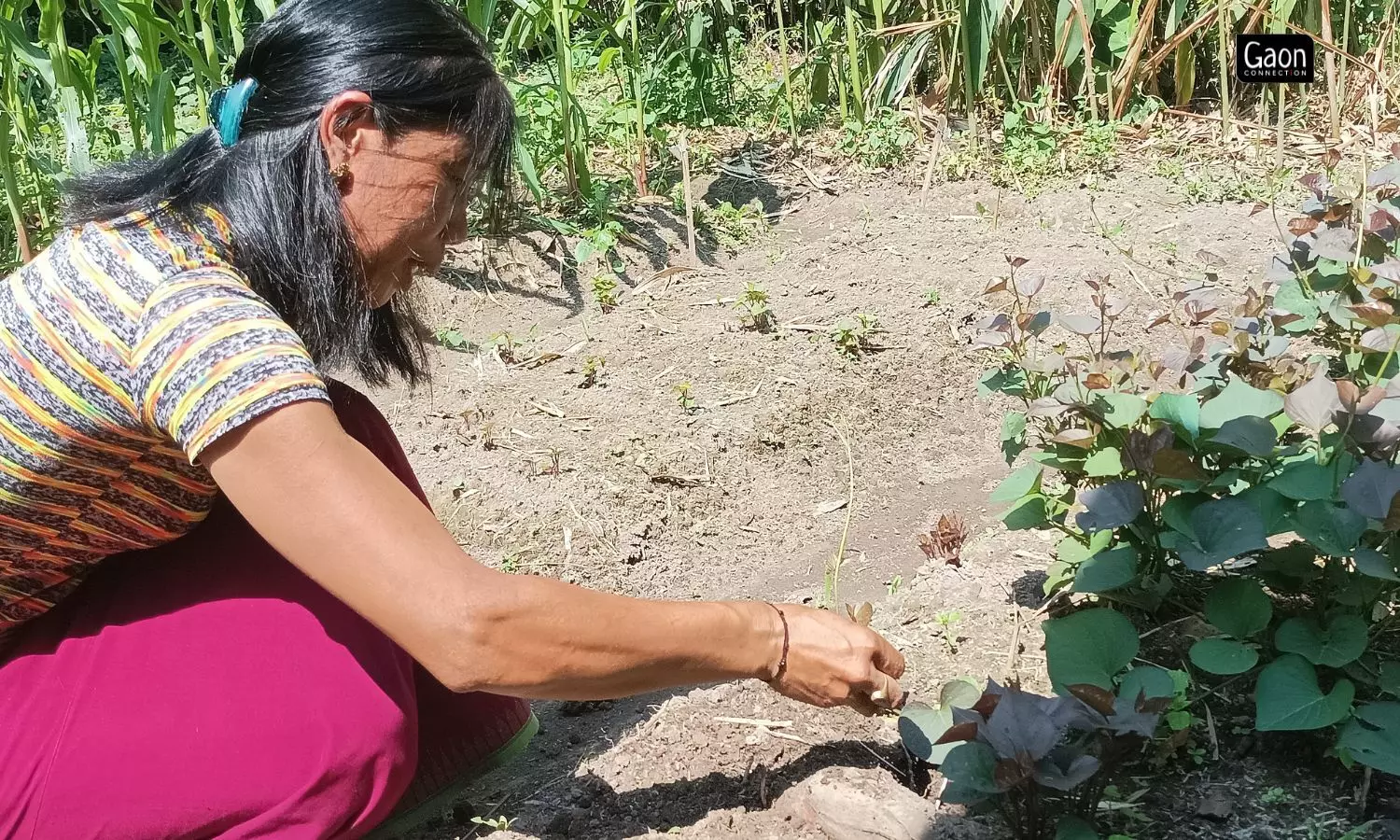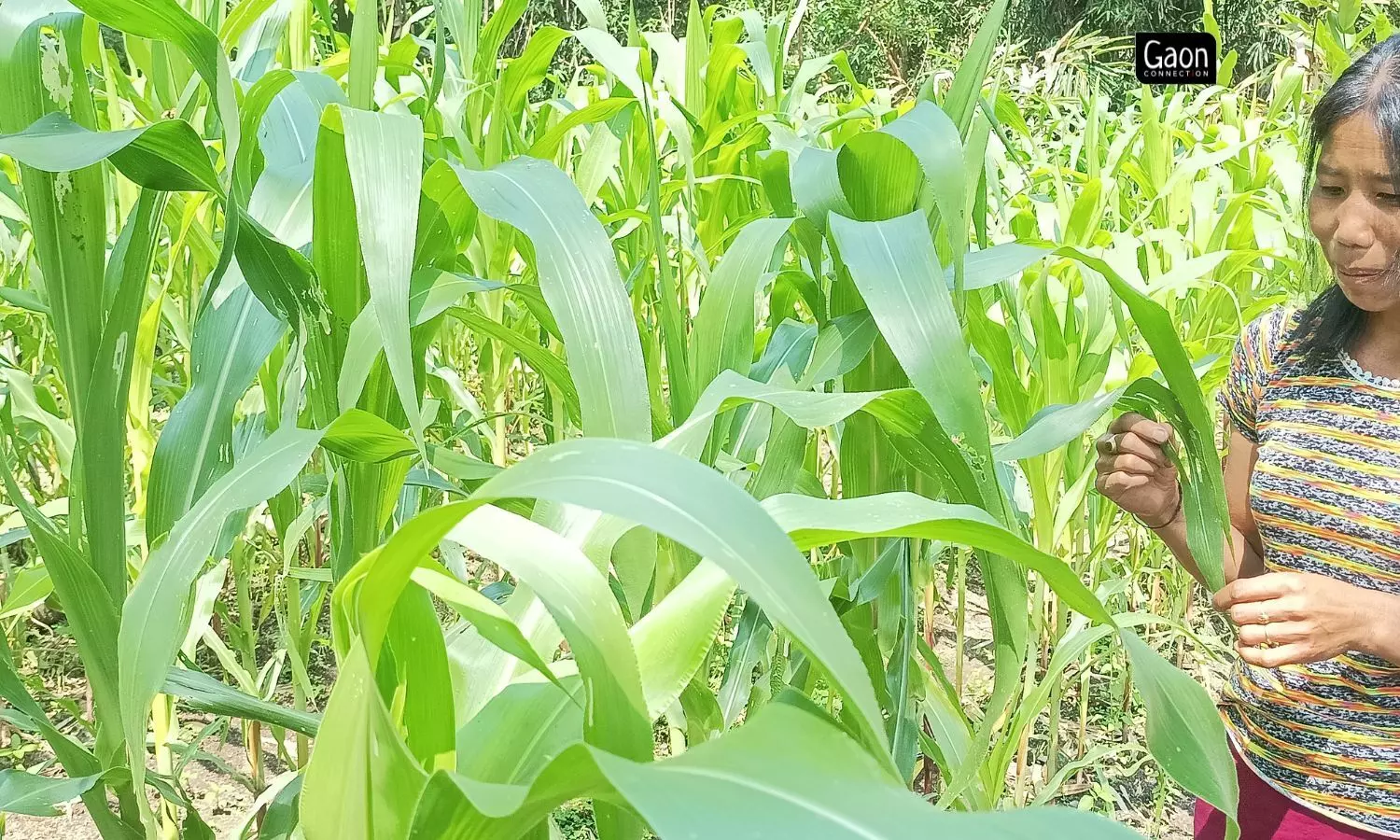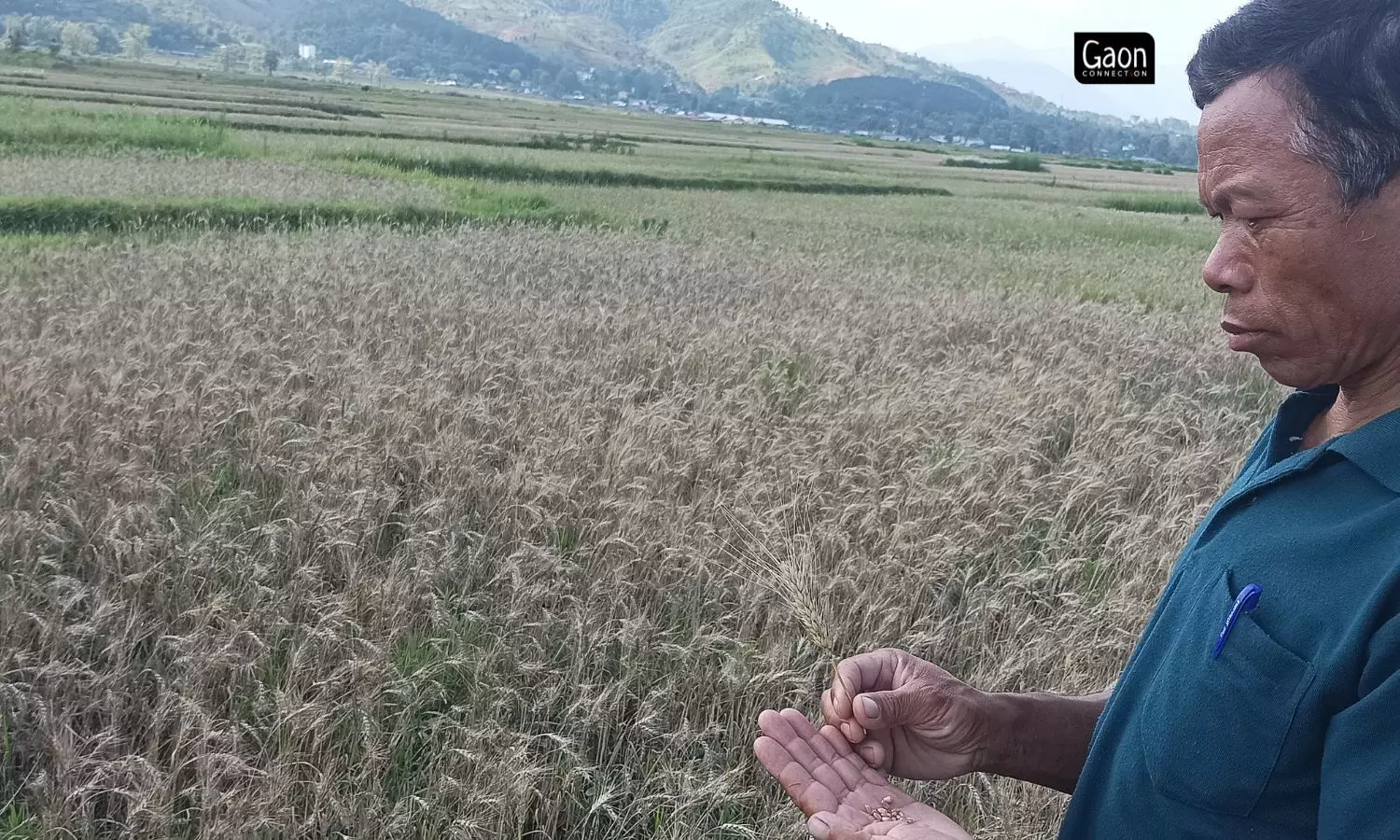Imphal, Manipur
Heikham Chanbi of Khurkhul village in Manipur is an organic farmer. She is one of the many farmers in the north east of India who are becoming a part of a central sector scheme to develop an organic value chain.
In Manipur, from where Chanbi hails, the Manipur Organic Mission Agency (MOMA), works under the department of horticulture and soil conservation to promote organic farming and related activities in the state, and aims to convert the maximum area into chemical-free organic zones by 2025.
A number of state and central level organisations are actively supporting farming communities in the state to move away from chemical farming. These institutions include the state agriculture department, horticulture and veterinary and animal husbandry departments besides research institutes including Central Agricultural University and ICAR Manipur centre.

Many farmers in the north east of India are becoming a part of a central sector scheme to develop an organic value chain.
Currently, 37,500 hectares of cultivable area under the MOMA is under organic farming. And a number of farmers in the state are being trained in organic farming.
For instance, in 2018, Chanbi attended a training programme organised by the Krishi Vigyan Kendra of Imphal West District, and Indian Council of Agricultural Research, Manipur Centre, which turned out to be a significant step forward for her in her cultivation practices and organic farming.
Organic farming spreading in Manipur
“Our organic farming activities were taken up under a self-help group called Loijing, made up of 10 members,” said Chanbi of Khurkhul village. In 2018, the SHG was awarded a loan of Rs 50,000. And since then, the farmer members have been following natural farming practices.
“We burn the agricultural waste in the paddy fields; we grow mustard for oil after the paddy harvest in about three hectares in Khurkhul village,” she said.
In order to make compost, 42-year-old Chanbi set up a vermicomposting and Bokashi infrastructure in her backyard. In the Bokashi process, the food waste and similar organic matter are converted into a soil amendment which adds nutrients and improves soil texture, she explained.

In Manipur, from where Chanbi hails, the Manipur Organic Mission Agency (MOMA), works under the department of horticulture and soil conservation to promote organic farming.
“The organic manure or compost we make was used in larger scale natural or organic farming. We hardly buy organic fertilisers,” Chanbi said. “Our incomes have improved, our food tastes better and stays fresh longer and we are all in good health,” she pointed out, adding that that is what they wanted not just for the SHG members but for the entire community.
Also Read: A village in Bihar goes organic, transforming the lives of its women
Organic pineapple cultivation in Manipur
Service providers under MOMA and other related departments have been assisting the pineapple farming communities in the hilly Churachandpur district which borders Mizoram, and where pineapple farming is one of the major income generators.
For pineapple farmer Alex Soikholun Gangte of Bunglon village, MOMA’s intervention programmes through its partner private agencies, have provided him necessary farming materials and marketing platforms.
According to 44-year-old Soikholun, the production of organic pineapple in Bunglon village has improved in the last few years after MOMA’s intervention.

Six farmers in Kangmong are cultivating organic black rice. After its harvest, oil seeds are grown in the same field without adding any chemicals.
“Pineapples are the main source of income for nearly 60 households in the village. And we are always looking for ways to improve the yield,” he said. “I’ve expanded my area of cultivation to a little more than a hectare and planted 500 more new saplings,” said the pineapple farmer.
“Last year, 10 metric tons of organic pineapples produced from Khousabung and Bunglon areas were sold under Mission Organic Value Chain Development for North Eastern Regions initiatives,” he added.
Also Read: Banswara’s migrant tribal labourers are now proud organic farmers
GI-tagged organic black rice
Meanwhile, MOMA has set up a farmer producer company (FPO), Chak-Hao Poireiton Organic Producer Company Ltd, and, so far, there are about 500 farmers who are part of it.
Arambam Lukhoi, a farmer from Kangmong village in Imphal West, changed over to organic farming four years ago. “In our village, we produce around 20 metric tonnes (15 bags, each bag weighs 50 kg) of black rice locally known as ‘chak-hao’ per sangam (one fourth of a hectare),” he said.
According to Lukhoi, less humanpower is required in harvesting chak-hao than it is harvesting normal high yielding variety of paddy. But, he said that the profit margin of cultivating black rice was double that of the regular rice.
Six farmers in Kangmong are cultivating organic black rice. After its harvest, oil seeds are grown in the same field without adding any chemicals.
“Currently, farmers are reluctant to change to organic farming because of labour problems and lack of immediate visible change,” the 58-year-old Lukhoi said. He had no doubt in his mind that many more farmers would take up organic farming if there were more awareness drives about natural and organic cultivation.
“To me, the advantages of organic farming are the good health, unique taste, and the importance of conserving the GI tagged chak-hao species,” Lukhoi said
Also Read: Black Rice Matters in Chandauli
Interview with Green Biotech EcoSolutions Pvt Ltd
Many private organisations are also involved in the organic farming sector in Manipur. Green Biotech EcoSolutions Pvt Ltd, is one such private research-based farming-input and biotech manufacturing and marketing enterprise that provides bio solutions for crops, soils, animal husbandry, aquaculture and environment management.
During the pandemic, Green Biotech launched an initiative to convert biodegradable kitchen waste to quality compost, and help people grow their own vegetables.

Green Biotech EcoSolutions Pvt Ltd, is a private research-based farming-input and biotech manufacturing and marketing enterprise that provides bio solutions for crops, soils, animal husbandry, aquaculture and environment management.
Geetashori Yumnam and Asem Sundari Devi, former medical officer in the state health mission, government of Manipur are founding members of Green Biotech EcoSolutions Pvt Ltd. They share the story of their company, which was set up in 2014. They firmly believe that sustainable and organic are the only future for farming.
Q. What drove you to establish Green Biotech EcoSolutions?
Answer: We wanted to start our own business that would be both sustainable and have a positive impact on society. So, we decided to focus on organic farming and did a lot of research on it. In 2016 we began manufacturing biofertilisers and biopesticides. The manufacturing unit is the first of its kind in Imphal
A: We wanted to be a part of the process of promoting organic farming in our state. We also wanted to be job providers rather than job seekers. Our primary objective was to minimise the human and environmental health hazards arising out of chemical pesticides and fertilisers used in food crops. We finally want to see Manipur become a totally organic state.
A: We manufacture biofertilisers, biopesticides, probiotics for livestock, enriched compost called Prakriti, among others.
A: We started with just the enriched compost Prakiti, and we now have 35 products.
A: Green AQ is a product which enhances the growth of the fish is popular because of its immuno-booster properties that also maintains the water quality. The demand is high for this.
A: The quality of the product is our only strategy. So, before launching a product in the market we test it in institutes such as ICAR, Department of Agriculture, central agriculture university, Fisheries Department. Qualified scientists and staff test the products for us and once the trial is successful, we launch it in the market.
A: Market linkage, transportation, packaging materials and exposure are some of the major challenges we face. Also, there is a deep rooted mindset in some people who think products from elsewhere are always better.
A: The consultancy service that we are providing to the customer is the immediate benefit. We are just a phone call away. We usually sort out the problems on the phone or if required we visit the site.
A: Yes. Kumbi,Wabagai,Wangoi and most of the hill districts of the state have benefitted. Our effort to spread awareness on the benefits of organic farming is ongoing. It will continue until our farmers’ economy improves from their organic produce.
A : Yes. To become one of the best manufacturing companies in the country and to participate in government sponsored schemes related to agriculture.
A: As everyone knows, organic farming takes time but it gives the maximum returns, and can earn the farmers a premium income.
This story has been done as part of a partnership with NABARD.




















